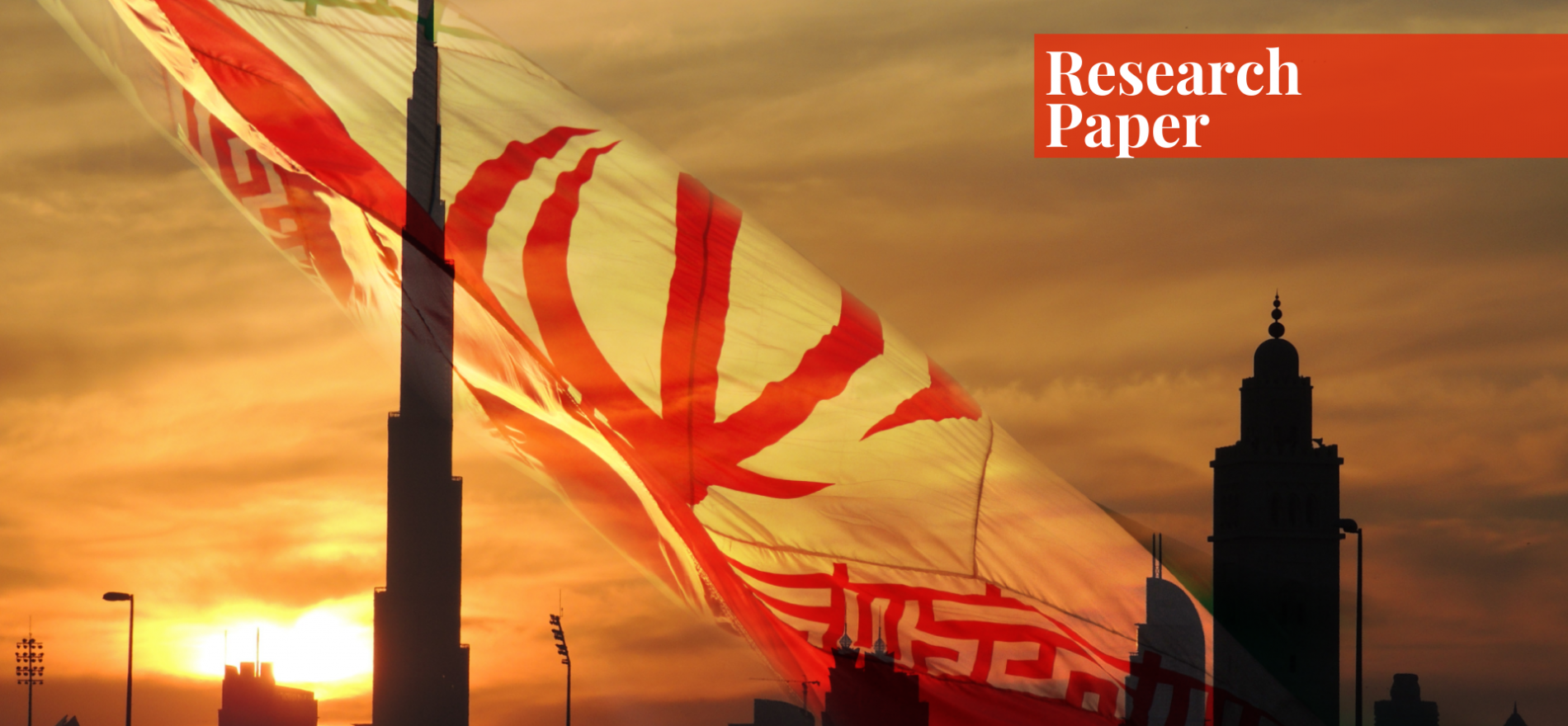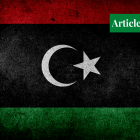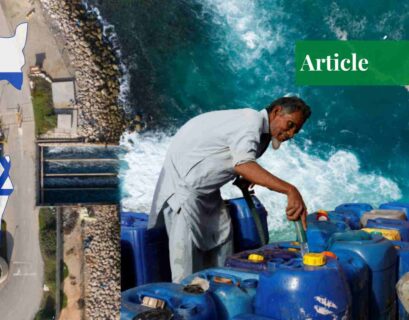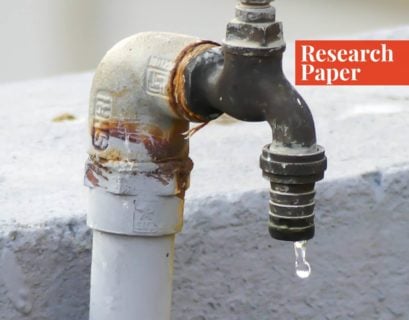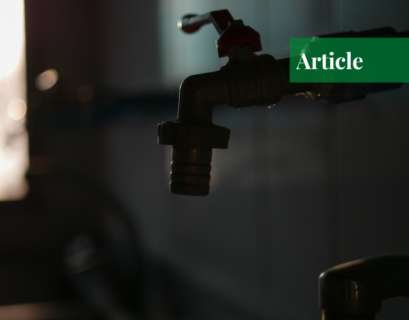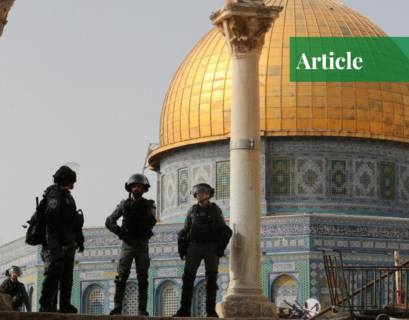Maryam Salman graduated from the University of Wollongong in Dubai where she received her Master's in International Relations degree. She currently works for Qamar Energy, an oil and gas consultancy firm, in Dubai, UAE.
Introduction
The United Arab Emirates’ foreign policy initiatives based on virtual water have been studied under neo-realist and neo-liberal perspectives with regard to the country of Iran in this paper. Iran has been selected for two major reasons. The first is that in 2010, Iran accounted as the top wheat exporter to the United Arab Emirates, at a figure of 67,378,000 USD (Lowe, 2012) and continues to be one of the top five markets the UAE imports wheat from – contributing essentially to the UAE’s virtual water trade.
The second reason is that current events in the Middle East have placed the UAE’s stance towards Iran and its perceived rising power (Rahigh-Aghsan & Jakobsen, 2010, pp. 559-573) under scrupulous observation by political pundits and academic scholars – in the region, and worldwide. The limited scope of this paper renders only two International Relations theories as feasible for application to this topic i.e. neo-realism and neo-liberalism. Two foreign policy initiatives of the UAE towards Iran, based exclusively on virtual water trade have been selected and studied together under the two theories.
The two policies listed in this paper are not derived from official documents – but have been determined after researching through a considerable amount of secondary resources, data, journals, newspaper reports, and feature articles that discuss the United Arab Emirates’ initiatives towards the Islamic Republic of Iran concerning virtual water, and its trade. Wherever “foreign policies” and “foreign policy initiatives/directives” are mentioned, it is advised that the reader understand these to mean personal, paraphrased compilations of such policy information located from numerous sources.
The paper begins with an introduction to the concepts of neo-realism, neo-liberalism, and virtual water and its trade – followed by an explanation of how virtual water trade affects the foreign policies of nations. It then branches into two of the UAE’s virtual water foreign policy initiatives with Iran. After a comprehensive discussion of these initiatives, the paper determines which theory among the two is best suited to describe them, followed by concluding observations.
Neo-realism, Neo-liberalism & Virtual Water
In the simplest terms, neo-realism can be understood as the modern manifestation of the theory of realism, a manifestation popularised in the 20th century by late American political scientist Kenneth Waltz. Realism is construed from the principles of conservatism and shifts the focus from individual agency to an international system, where the nation-state is the primary actor (Shimko, 2013, pp. 35-54). Anarchy, the system of self-help, the inevitability of a security dilemma, and the distribution of power are the defining features of neo-realism and are most often cited as reasons for the military and security actions exercised by nation-states.
In light of these features, it would seem obvious that neo-realism could explain the foreign policy initiatives of country A with country B regarding virtual water trade. In other words, country A and country B may have common, hard power rationales shared between them, even if they are partners based only on the trade of virtual water. This can be replicated just as simply under the perspective of neo-liberalism, which again can be understood as the 20th-century development on the original theory of liberalism.
Where liberalism in itself was based on individual agency and the ability of individuals to be rational, ethical, and moral in creating common interests with societal groups, neo-liberalism is based on the “Harmony of Interests” (Shimko, 2013, pp. 35-54), defined by characteristics such as free trade between nations, the spread of democratic institutions, privatization, foreign direct investments, fiscal austerity, laissez-faire, and an enhanced role of the private sector in any nation-state. Continuing our example of country A and country B, the trade of virtual water between these two countries can be appositely described under the neo-liberal perspective.
For the study this makes an interesting point, considering the number of economic sanctions imposed upon Iran by the United Nations. Despite these restrictions, the United Arab Emirates continues to be one of the major food traders of Iran, making the analysis of such foreign policy directives all the more pressing. Let us now understand the concept of virtual water and its trade. By mere definition, virtual water refers to the hidden flow of water if food or food commodities are transferred from one place to another. If engaged in an exchange between two countries, this is then known as Virtual Water Trade.
It is important to note that virtual water can only exist in the trading of consumer perishables, like food. For instance, if the United Arab Emirates imports 1 metric tonne of wheat from Iran, and that metric tonne of wheat utilised 16,000 cubic metres of water to be cultivated, harvested and exported, then the UAE has imported 16,000 cubic metres of water by importing the 1 metric tonne of wheat from Iran. If applied on food imports and exports at a macro level, Virtual Water Trade clocks in billions of cubic metres of water traded between countries in a single year alone.
The very concept of Virtual Water Trade is based on the idea that water-rich – most often developed – nations export their water, hidden in food and food commodities, to water-poor, developing nations so that these developing nations can utilise their own precious water resources in more productive areas, where more value-added per volume unit of water is generated (Weiss & Slobodian, 2014, pp. 717-737). This clearly illustrates that Virtual Water Trade aims to somehow compensate for water shortages witnessed in the arid and semiarid regions of the world, through a geographical shift in agricultural production (Renault, 2002).
It was only after Tony Allan first coined the term of virtual water in 1994 that the concept began generating interest in the trading volumes and practices of perishables between countries. Also referred to as embedded water, embodied water, or exogenous water, the trade of virtual water has resulted in the formation of an invisible or rather, implicit support system between the two countries engaged in such trade (Hoekstra, 2003, pp. 5-248). Indeed for water-scarce countries, it could be very lucrative to import large volumes of virtual water in the form of perishable goods, in exchange for an inferred affiliation with a water-rich, highly developed nation.
The aforesaid statement does not hold true with regard to this study for two reasons. One, Iran could hardly be argued to be supremely developed in comparison to the United Arab Emirates; indeed, the UAE ranked 30 in the United Nations Human Development Report (2014) and the most developed Arab country in 2014, while the Islamic Republic of Iran clocked in at 75 in the same report for the same period. Human development aside, economic development in Iran is sparse, scattered, and privy to the sanctions imposed on it by the United Nations. The United Arab Emirates overtakes Iran in this regard by a very long mile.
Two, it is improbable, if not exhaustively far-fetched, to claim that the United Arab Emirates would import virtual water from the Islamic Republic of Iran for the formation of an implicit support system. This could be true for Iran if it – hypothetically speaking – imported virtual water from the UAE. The United Arab Emirates has strong alliances, based in both hard power and soft power derivatives, with Western and regional powers due to mutual interests. The Islamic Republic of Iran can neither provide hard power support to the UAE (due to its own inadequacies) nor are its soft power stratagems encouraged by the Emirati state (Sadjadpour, 2011).
Virtual Water Trade & Foreign Policy
In the section above, we discussed how neo-realism and neo-liberal perspectives regarding Virtual Water Trade between country A and country B could indicate the motives, purposes, and policies of the two respective states. An interesting study conducted by Jeroen Warner and Dik Roth (2008) at the Wageningen University in the Netherlands brings to light the perceived foreign policy initiatives between any two such countries engaged in Virtual Water Trade. Warner and Roth (2008) illustrate the contending narratives of both realism (classical realism that is) and liberal internationalism, a branch of neo-liberalism.
According to Warner and Roth, under the classic realism perspective, countries engaged in Virtual Water Trade view water resources in a Malthusian light. The Malthusian prognosis suggests that natural resources are static and unyielding – and the ever-increasing consumption of such resources by growing human populations has resulted (and will continue to result) in conflicts and wars (Selby, 2005, pp. 329-349). Thus under such a perspective, foreign policy begins to develop on the notions of state-centered interventionism, the belief that scarcity of water resources will lead to water wars, that such resource trade makes the water-poor country more vulnerable, thus leading to heavy dependence on the water-rich nation.
As stated earlier, the trading of virtual water between the United Arab Emirates and Iran could hardly be interpreted as the former developing a dependence on the Islamic Republic or being vulnerable due to its own inadequate water resources. To continue, according to Warner and Roth’s liberal internationalism perspective, trading in virtual water leads to the development of foreign policy on the liberal notions of free-market trade/internationalism and interdependence between both countries to resolve local shortages. This is often described as a Cornucopian prognosis, as was said by Ibn Khaldun (1377/1994) in Muqaddimah. He said that when the population increases, so does the labour, making production increase in turn to meet the needs of the population with growing profit.
If applied to nation-states and the international system on a macro level, it would dictate that the needs of the growing world population can be sustained through growth in trade and production, which in turn would be sustained by the growth in labour. Such a perspective defies the claim by realism that water scarcities lead to water wars – and instead, stresses that water wars can be prevented through global food trade. This means, in other words, that water wars can be prevented through Virtual Water Trade.
In the case of the United Arab Emirates importing virtual water from Iran, it is indeed more plausible to assume, if not fully proven, that both countries engage in and maintain such a trade for the protection of common economic interests – both the UAE and Iran would certainly consider the repercussions of going to war against one another if such a scenario ever came into existence. Here it becomes important to stress that virtual water, though an added help in the formation of foreign policies by countries, is not in itself a sufficient criterion for the formation of such policies.
As was pointed out by Dennis Wichelns (2014), the trading of virtual water as a concept is not based as much on an underlying conceptual framework for state decision-makers as it is considered to be. Antonelli Marta and Sartori Martina (2015) say as much in their study on virtual water: the potential of such water as an indicator for informing decision-making in foreign policy and international relations is yet to be unfolded fully because the concept is not an adequate policy measure.
The paper identifies this limitation; however, it reiterates that the trading of virtual water and the absence of its discussion in the International Relations (IR) discourse makes it intriguing enough to study under the lens of IR theories. Food security, derived from the trade of virtual water, opens avenues into the study of virtual water as a concept. It also explains how this concept, in its limited scope, can provide a picture of some of the water-related foreign policies pursued by the United Arab Emirates with the Islamic Republic of Iran.
Under a neo-realist lens, virtual water can be said to lead to the development of policies that tackle water wars arising from water scarcities, the creation of a security dilemma – where the water-poor nation feels vulnerable against the water-rich one – the creation of dependency, and a shift in the balance of power. Under a neo-liberal lens, virtual water can, arguably, lead to the development of policies that encourage free trade, the resolution of or coming to terms on issues of water and water scarcities, and interdependence between both countries that can extend, in some cases to soft power stratagems.
The paper will now discuss two policies the United Arab Emirates practices towards the Islamic Republic of Iran with regard to virtual water and Virtual Water Trade. It will then analyse them together under the features of neo-realism and neo-liberalism expounded above.
The UAE’s Foreign Policy with Iran
The United Arab Emirates shares, as cited by political onlookers in the West, a more congenial foreign policy with the Islamic Republic of Iran than that of its regional counterparts. This is arguably true for two reasons. One, the oldest merchant families in Dubai and the rest of the United Arab Emirates all herald from the southern fringes of Iran, due to which the country has had a long history of trade with the Shiite republic. Ancestral history, a secular environment, and the UAE’s trade interests have granted these merchant families and their subsequent generations a safe haven in the Emirates.
Two, though the United Arab Emirates periodically rejects Iran’s claims to its three islands of Abu Musa, Greater Tunb, and Lesser Tunb, it has always remained careful to not push the dispute into real conflict. William A. Rugh (2014) observes that this could be a strategy to protect mutual trade interests; indeed, the United Arab Emirates, as pointed before, is the Islamic Republic’s largest market for wheat export. This secures the UAE’s local water resources to a significant degree due to Virtual Water Trade in the form of grain staples trade, and it also becomes a source of revenue for the economically crippled country of Iran.
Moreover, the United Arab Emirates has expressed hesitation at the installation of American military bases in its territory, for fear of provoking an Iranian retaliation (Rugh, 2014) and possibly injuring its trade relations. Washington’s confrontational policy with Tehran has been in the limelight ever since the Iranian Revolution of 1979 – and the UAE’s cordial, if not excessively amicable, relations with the Islamic Republic have not failed to raise American eyebrows. In saying this, it can be concluded that the United Arab Emirates is not looking to sell off its relations with Iran anytime soon.
Geographical proximity, and the fact that the Emirates hosts more than 8000 Iranian traders and trading firms on its land, informs the decision-making processes behind the foreign policy with the Islamic Republic. Trade between the UAE and Iran tripled to up to 12 billion USD between 2005 and 2009, providing another interesting insight into the congenial relations of the two countries. Certainly, the United Arab Emirates recognises the importance of such relations for its economic trade and growth – as does Iran.
Recent developments regarding the economic sanctions imposed upon the Islamic Republic by the United Nations and the International Monetary Fund have spelt further development and progress in the trade relations of the UAE and Iran. In January 2016, Iran complied with steps concerning its nuclear programme, where it showed that it was not building a nuclear weapon. These included removing two-thirds of its uranium centrifuges, disabling its plutonium reactor, and taking measures to allow better insight into its nuclear programme. As a result, a series of sanctions on Iran were lifted, especially those in the economic realm, meaning that a new, untapped market would emerge onto the scene.
For the United Arab Emirates, this will be an excellent economic development. Analysts suggest that developments in non-oil sectors, including trading of food and food products, transportation and logistics, banking, tourism, and trade will witness immense growth, of up to 13 billion USD for the Emirates alone. The UAE accounts for more than 80% of all trade conducted by GCC countries with Iran (Welch, 2016), the bulk of which constitutes food staples. With regard to this study, this confirms that Virtual Water Trade is very much an integral part of the relations between the Emirates and Iran and is thus also reflected in its foreign policies with the Islamic Republic.
We shall elaborate on two such policies that the United Arab Emirates has formulated towards the Islamic Republic of Iran regarding Virtual Water Trade. Due to a lack of cohesive data and information regarding food trade practices with Iran, the following policies have been compiled from various secondary sources, journals, newspaper reports, and feature articles circulated in media discourse in the UAE. Care has been taken to ensure these policies are accurate in their information, even if they are not phrased in the official language. The two policies are as follows:
- The United Arab Emirates looks to continue being the major re-exportation hub of food, food products, and consumables from the Islamic Republic of Iran.
- Non-oil businesses and firms, with emphasis on food businesses, of the United Arab Emirates are encouraged to invest in the Iranian market.
In short, the UAE has expressed willingness in maintaining its status as the major re-exporter of food, food products, and consumables imported from Iran, and in encouraging food businesses and firms to invest in the Iranian market.
The Neo-realist and Neo-liberal Analysis
To summarise once more the features of the two International Relations theories, this part shall be applying the above discussed foreign policies of the United Arab Emirates towards Iran concerning virtual water, to the neo-realism and neo-liberalism approaches. Under a neo-realist lens, virtual water can be said to lead to the development of such policies that tackle:
- Water wars arising from water scarcities;
- The creation of a security dilemma (where the water-poor nation feels vulnerable against the water-rich one);
- The creation of dependency and;
- A shift in the balance of power.
Under a neo-liberal lens, virtual water can, arguably, lead to the development of such policies that encourage:
- Free trade;
- The resolution of, or coming to terms on, issues of water and water scarcities and;
- An interdependence between both countries that can extend, in some cases to soft power stratagems.
Both policies are based on the trading of food and food products – in other words, commodities containing embedded or virtual water. The first states that the United Arab Emirates looks to continue being the major re-exportation hub of food, food products, and consumables from the Islamic Republic of Iran. This means that the United Arab Emirates imports these products from Iran and then exports them to other countries, securing billions of dollars in profit. In 2010 alone, the Emirate of Dubai re-exported goods worth 9 billion USD (Sadjadpour, 2011) from Iran to countries worldwide, cementing its position as the major re-exporting hub of products from Iran.
The second policy encourages businesses and firms, especially those engaged in non-oil sectors such as food and food production, to invest in the Iranian market. This has become feasible only recently, with the lifting of a considerable number of economic sanctions that were imposed on the Islamic Republic. If examined under the features of the neo-realist lens, neither policy provides enough margin to ascertain whether it could tackle any imminent threat of a water war for the simple reason that both the United Arab Emirates and the Islamic Republic of Iran are not, as of now, in conflict with one another over each other’s water resources.
This holds true for the foreseeable future as well; Iran is not the only exporter of virtual water to the UAE, a factor that would cause it to intensely consider the consequences of engaging in a water war, if ever one arose. Secondly, the policies can, positively, be read in terms of creating a security dilemma; however, exceptional care has to be taken here in this regard. Where traditionally it is maintained, under the theory of neo-realism, that it is the water-poor nation that faces vulnerability in the face of its inadequate resources, compelling it to amp its security apparatus (empirically speaking, this sounds more of a classical realism view rather than a neo-realism view), the reality with the United Arab Emirates and Iran could not be more converse.
The United Arab Emirates, though being water-scarce for the most part, especially in comparison to its larger and water-rich neighbour of Iran, experiences a unique case where its trade in virtual water secures a considerable portion of the Islamic Republic’s revenue. This means that Iran, being militarily, politically, and economically weaker than the United Arab Emirates depends on this trade equation with the Gulf nation for securing its fiscal policies; any change, pause, or stop in this equation could severely rupture the financial capital that Iran receives from the UAE. In this way, Iran is the vulnerable partner due to its reliance on the UAE’s continued importing of its virtual water products.
Indeed, in saying so, both these policies do hold true under the second facet of neo-realism, but conversely: here it is the water-rich nation that is vulnerable against the water-poor one. Thirdly, the importing and re-exporting of virtual water, as well as food businesses investing in Iran does create a sort of dependency between both nations, but again here it is converse. While the theory claims the water-poor nation becomes dependent on the water-rich one, the same cannot be completely agreed upon in the case of the UAE and Iran. For similar reasons as illustrated above, the Islamic Republic is more dependent on the Emirates’ continued virtual water trade for securing a share of its revenue, than is the Emirates for securing its own precious local water resources.
As mentioned before, Iran is not the sole provider of virtual water to the United Arab Emirates; in this way, Iran’s dependency on the Gulf country deepens further due to fears that the UAE could abandon its trade equation. This also holds true for the fourth facet under the neo-realist lens; instead of creating a shift in power, the current balance of power between Iran and the United Arab Emirates has been in existence since quite some time now, and the exporting of virtual water by water-rich Iran to the water-poor UAE is not going to change it in the foreseeable future.
The United Arab Emirates has been and continues to be the mightier power when contrasted against Iran under the segments of economy, politics, and military. The neo-liberal perspective, on the other hand, may not be as converse as the neo-realism one discussed above. Firstly, both policies under the neo-liberal perspective do not seem to be wholly encouraging free trade between the United Arab Emirates and the Islamic Republic of Iran. The paper supports this argument because focusing solely on the trade of virtual water between both countries is not sufficient enough to encourage or lead to free trade, nor is the establishment of Emirati food businesses in the Iranian market an adequate criterion.
Indeed, such steps could lead to the development of a larger conceptual framework wherein free trade could actually commence – and the recent removal of a series of economic sanctions imposed upon Iran may contribute to such a development. Nevertheless, it does not seem apparent in the foreseeable future, and the trade of virtual water in itself could not result in it. Secondly, the neo-liberal lens suggests that the trade of virtual water between both countries could lead to the resolution of water conflicts and wars caused due to water scarcities. This takes us back to the first argument under the neo-realism lens which suggested the possibility of tackling water wars with more warfare.
In either scenario, it has to be considered whether such a war is taking place or not. As mentioned before, neither the United Arab Emirates nor the Islamic Republic of Iran is engaged in a conflict of such sort, and even if conditions suddenly spelled the development of such a conflict, Iran would weigh its options very cautiously before embarking on it. However, it can be said that such trade between both countries could lead to a series of bilateral agreements where they work towards resolving other water conflicts in the region. Thirdly, while the trading of virtual water and food-based investments in Iran by the UAE can account for a sort of interdependence between both countries, these two policies alone cannot lead to a full-fledged, strong interdependence.
For the most part, they may lead to the development of other frameworks that could contribute to such interdependence. To think that the trade of virtual water could result in interdependence that would allow for the transfer of soft power between both countries is at best illogical, if not very naïve. The United Arab Emirates has never been forthcoming of Iran’s ideology, be it religious or political, and any sort of interdependence between both countries, especially that borne out of the trade of virtual water, cannot be said to lead to the pervasion of soft power stratagems by either of the two countries.
Observations & Conclusion
From the above analysis, it can be concluded that the concept of virtual water and its trade in affecting the foreign policy initiatives of the United Arab Emirates towards the Islamic Republic of Iran is not unimportant, but is definitely not sufficient to change the relations between the two countries. The policies studied above seem to fall more conclusively under the neo-realism lens than the neo-liberal ones, albeit conversely to what the theory claims traditionally. This is true due to the following observations:
- A security dilemma could be created due to Iran feeling vulnerable to the United Arab Emirates’ power – though it is the country with ample water resources between the two. This would cause Iran to amp its security apparatus in the wake of feeling economically vulnerable to the Emirates, due to its heavy reliance on exporting food and food staples (also known as exporting embedded water), and for fear that the UAE could at any time abandon this trade equation.
- The UAE remains Iran’s largest non-oil trade partner within the Middle East and North Africa, and for the reasons illustrated above, the water-rich Islamic Republic has formed a sort of dependency on the water-poor United Arab Emirates – another converse confirmation of the neo-realist perspective.
- Moreover, the investment in the Iranian market by agro-based food firms of the United Arab Emirates underscores these realist claims once again. Though beneficial for both the Islamic Republic and the Emirates, such a development can hardly be cited as creating interdependence that goes beyond mutual trading interests into the resolution of regional water conflicts or the spread of Iranian ideology, political and religious, through soft power tactics.
From these observations, this paper concludes that the two foreign policies based in virtual water and its trade of the United Arab Emirates towards Iran are exclusively neo-realist than they are neo-liberal. The neo-liberal lens looks promising only in the fact that such trade could, possibly, lead to the development of larger conceptual frameworks dealing in free trade, the resolution of water conflicts, and the exchange of soft power. On its own, virtual water and its trade are not feasible enough to ensure neo-liberal developments between the Islamic Republic of Iran and the United Arab Emirates in the foreseeable future.
References
- Berti, B., & Guzansky, Y. (2015). Gulf Monarchies in a Changing Middle East: Is Spring Far Behind? Orbis, 59(1), 35-48. https://doi.org/10.1016/j.orbis.2014.11.004
- Bouyamourn, A. (2015, August 6). UAE economy to gain $13bn from lifting of Iran sanctions, IMF predicts. The National. https://www.thenational.ae/business/uae-economy-to-gain-13bn-from-lifting-of-iran-sanctions-imf-predicts-1.630021
- Hoekstra, A. (2003, February). Virtual Water Trade: Proceedings of the International Expert Meeting on Virtual Water Trade (Value of Water Research Report Series No. 12). IHE Delft Institute for Water Education.
- Lowe, A. (2012, February 19). Ensuring food security of the UAE. Gulf News. https://gulfnews.com/business/ensuring-food-security-of-the-uae-1.982693
- Marta, A., & Martina, S. (2015, June). Unfolding the Potential of the Virtual Water Concept. What is still under debate? Environmental Science & Policy, 50, 240-251. https://doi.org/10.1016/j.envsci.2015.02.011
- Rahigh-Aghsan, A., & Jakobsen, P. V. (2010). The Rise of Iran: How Durable, How Dangerous? Middle East Journal, 64(4), 559-573. https://www.jstor.org/stable/40926500
- Renault, D. (2002). Value of Virtual Water in Food: Principles and Virtues. In Proceedings of the UNESCO-IHE Workshop on Virtual Water Trade. https://www.fao.org/3/ap527e/ap527e.pdf
- Roberts, D. B. (2016, March 18). Mosque and State. Foreign Affairs. https://www.foreignaffairs.com/articles/united-arab-emirates/2016-03-18/mosque-and-state
- Rugh, W. A. (2014, September). Sources of U.S. Tension with the United Arab Emirates.American Diplomacy. https://americandiplomacy.web.unc.edu/2014/09/sources-of-u-s-tension-with-the-united-arab-emirates/
- Sadjadpour, K. (2011, July). The Battle of Dubai: The United Arab Emirates and the U.S.-Iran Cold War. Carnegie Endowment for International Peace. https://carnegieendowment.org/files/dubai_iran.pdf
- Selby, J. (2005). The Geopolitics of Water in the Middle East: Fantasies and Realities. Third World Quarterly, 26(2), 329-349. https://www.jstor.org/stable/3993731
- Shane, D. (2014, January 21). Dubai-Iran trade to rebound on sanctions relief – official. Arabian Business. https://www.arabianbusiness.com/dubai-iran-trade-rebound-on-sanctions-relief-official-535532.html
- Shimko, K. L. (2013). Contending Perspectives on International Politics. In International Relations: Perspectives, Controversies & Readings (pp. 35-58).Cengage Learning.
- Warner, J., & Roth, D. (2008). Virtual Water: Virtuous impact? The unsteady state of virtual water. Agriculture and Human Values, 25, 257-270. https://link.springer.com/content/pdf/10.1007/s10460-007-9096-7.pdf
- Weiss, E. B. & Slobodian, L. (2014). Virtual Water, Water Scarcity, and International Trade Law. Journal of International Economic Law, 17(4), 717–737. https://doi.org/10.1093/jiel/jgu038
- Welch, E. M. (2016, November 12). Iran is open for business, but what does it mean for GCC companies? Gulf Business. https://gulfbusiness.com/iran-open-business-mean-gcc-companies/
- Wichelns, D. (2014). Virtual Water: A Helpful Perspective, but not a Sufficient Policy Criterion. Water Resources Management, 24(10), 2203-2219. https://doi.org/10.1007/s11269-009-9547-6
If you want to submit your articles and/or research papers, please check the Submissions page.
